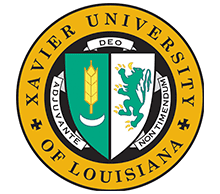Xavier University Cancer Study: “Super Cocktail” Possible Powerful Cancer Treatment
The latest findings in a study conducted in the Ireland Lab at Xavier University of Louisiana [a UNCF-member institution] demonstrate that a newly developed ‘super cocktail’ of six phytochemicals can kill BRCA1 mutated breast cancer cells and inhibit “mammary tumorosphere” (also called mammospheres) formation. Significantly, this effect has been achieved at bioavailable/bioachievable levels.
Participating researchers are Dr. Shubha Ireland (Professor of Biology, Xavier) in collaboration with Dr. Madhwa HG Raj (Professor, LSU Health Sciences) and Dr. Shailajja Raj, MD (Protegene Corporation, Metairie, LA).

The latest findings build on previous research conducted in the Ireland Lab and published in the Journal of Cancer (vol.4, pp.703-715, November 2013), which found that the cocktail showed 100 percent killing of triple-negative breast cancer cells without any adverse effects on normal (non-cancer) cells. These results, along with genetic/molecular data were the impetus for development of “Breast Safeguard-Susthana” by the Protegene Corporation (www.protegenecorporation.com).
These exciting data were presented under ‘late breaking abstracts’ at the meeting of the American Association for Cancer Research (AACR) on April 4, 2017, in Washington, DC.
This ongoing research includes participation by Xavier undergraduate students and is funded by:
- The Louisiana Cancer Research Consortium (LCRC)
- Dr. Ireland’s Xavier Eminent Scholar XXXVIII Professorship through the Louisiana Board of Regents funding
Did you know?
- Xavier University of Louisiana ranks first nationally in the number of African American undergraduates continuing to complete medical school and is leading the nation in bachelor’s degrees granted to African Americans in the biological and biomedical sciences, the physical sciences, and physics, and in graduation of African Americans who go on to earn doctorates in the sciences and engineering.